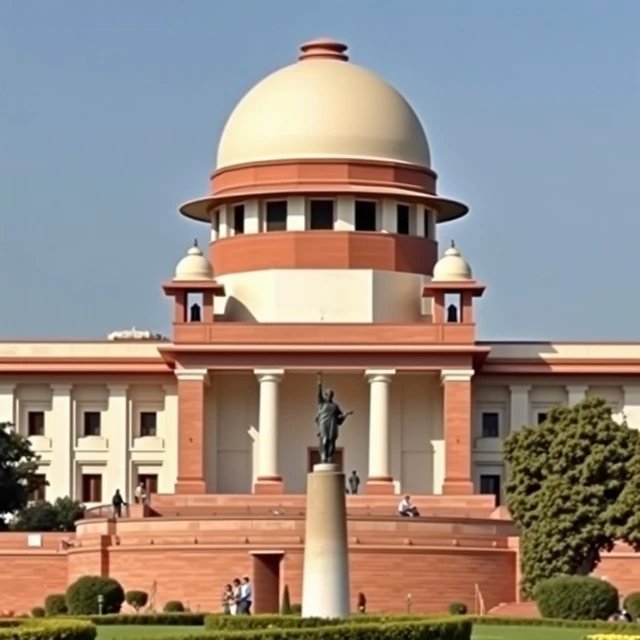
Legal Desk, New Delhi, 12-May: On Wednesday, the Supreme Court declared that digital access is a fundamental right and issued several directives to make the Know-Your-Customer (KYC) procedure easier for people who may have low eyesight or visual impairment, including survivors of acid attacks who may have sustained eye injuries.
The court made the statement after a panel of justices JB Pardiwala and R Mahadevan rendered a decision on two PILs related to these issues.
According to the court’s historic ruling, the government must guarantee that digital procedures like KYC are widely accessible to everyone, including those with impairments or those who may have suffered facial disfigurements. According to the court, this is protected by Articles 21 (right to life and liberty), 14 (right to equality), and 15 (protection against discrimination) of the Indian Constitution.
Crucially, the court ruled that, in accordance with Article 21, the right to internet access is an essential part of the right to life. The court gave a number of instructions along with the order to guarantee that those with visual impairments or other similar difficulties could finish the KYC procedure.
We have maintained that the KYC procedures for the disabled must be changed. We have provided twenty instructions. The court noted that the petitioners’ facial disfigurements from acid attacks and blindness have prevented them from completing the KYC process.
The petitioners have a statutory right to be accommodated during the KYC procedure thanks to constitutional laws. The accessibility code must be incorporated into the updated digital KYC criteria. “Article 21 needs to be reinterpreted in light of such technology and the growing digital divide in the modern era, where economic opportunities, etc., are through digital (access),” it continued.
One of the petitioners was a victim of an acid attack who suffered severe facial and eye damage. In July 2023, the survivor went to an ICICI Bank to create a bank account. However, because the bank insisted on her taking a “live photograph” by blinking her eyes, it was determined that she was unable to complete the Digital KYC/e-KYC process.
According to the petition, a customer must blink their eyes in front of the camera in order to satisfy the RBI-regulated KYC process’s mandatory condition of demonstrating their “liveness.”
Only after the issue caused a social media controversy did the bank later make an exception for the petitioner.
Additionally, the petitioner stated that all public and private institutions that use the Digital KYC/e-KYC procedure should receive a directive to properly apply any recommendations that may be provided.
Useful Links
- To get latest updates visit our YouTube Channel: The Legal Observer
In House Development | The Legal Observer
-
The Hidden Cost of NEET: Who Really Loses?
With the President rejecting Tamil Nadu’s NEET exemption bill, the debate on educational fairness, state autonomy, and meritocracy has resurfaced. News Desk, New Delhi, 12 May: A Blow to Federal Harmony The central government, via the President, recently dismissed Tamil Nadu’s legislative effort to opt out of the NEET exam. This decision—despite the bill being…
-
Right to Privacy Not Absolute: Chhattisgarh High Court Allows Private Chats as Evidence in Matrimonial Dispute
The Chhattisgarh High Court has reaffirmed that the right to privacy, though fundamental, is not absolute, holding that relevant call recordings and WhatsApp chats can be admitted as evidence in matrimonial proceedings. In a judgment delivered on February 11, Justice Sachin Singh Rajput dismissed a wife’s appeal challenging a family court order that permitted her…
-
Legal Analysis: Hate Speech Jurisprudence in India — In Context of the Pleas Against Himanta Biswa Sarma
The refusal of the Supreme Court of India to entertain petitions seeking criminal action against Himanta Biswa Sarma brings into focus a deeper constitutional issue: how Indian law defines, regulates, and adjudicates hate speech. This analysis examines the constitutional framework, statutory provisions, key precedents, and how they apply to the present controversy. I. Constitutional Framework:…








